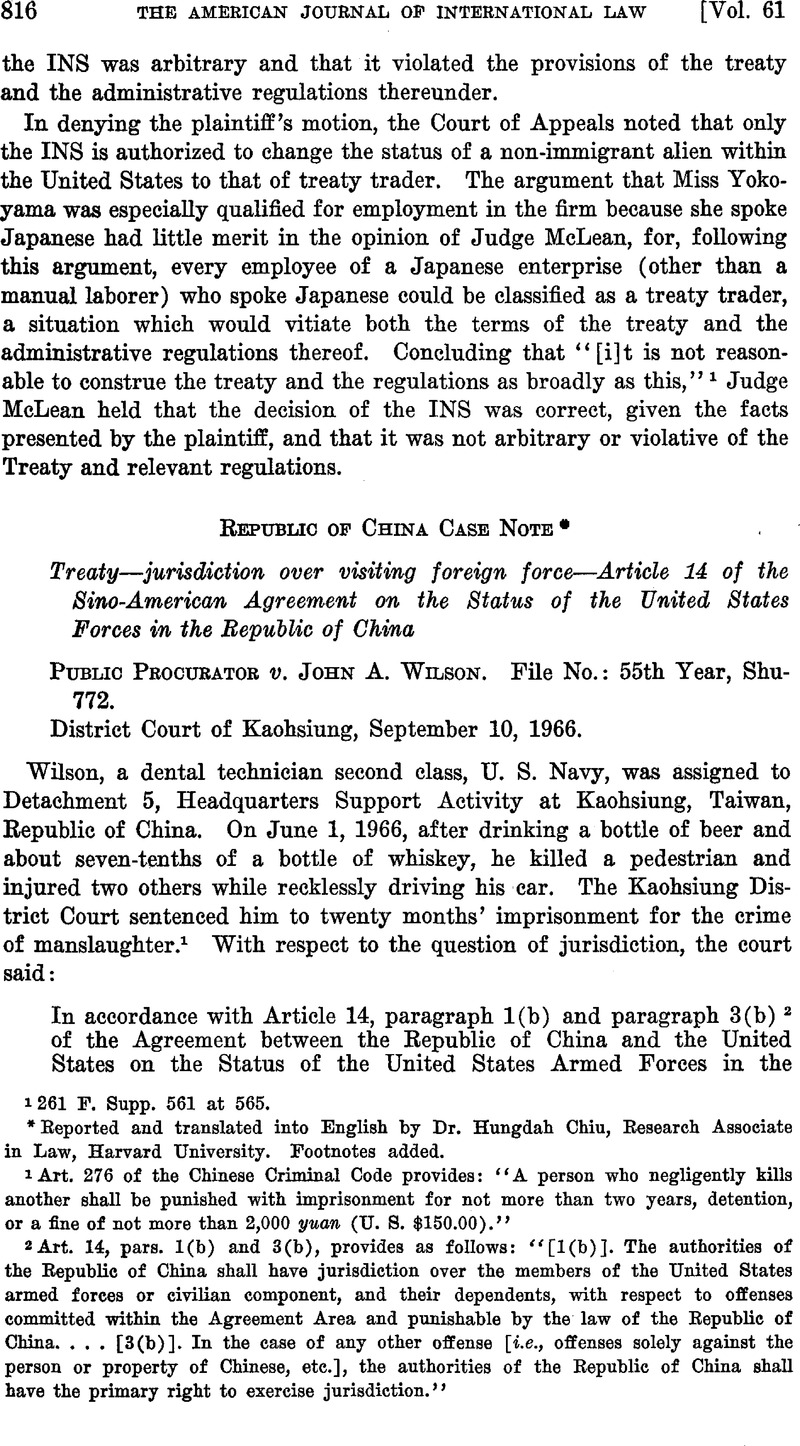No CrossRef data available.
Article contents
Republic of China Case Note
Published online by Cambridge University Press: 28 March 2017
Abstract

Keywords
- Type
- Judicial Decisions
- Information
- Copyright
- Copyright © American Society of International Law 1967
References
* Reported and translated into English by Dr. Hungdah Chiu, Research Associate in Law, Harvard University. Footnotes added.
1 Art. 276 of the Chinese Criminal Code provides: “A person who negligently kills another shall be punished with imprisonment for not more than two years, detention, or a fine of not more than 2,000 yuan(U. S. $150.00).“
2 Art. 14, pars. 1(b) and 3(b), provides as follows: “ [ 1 ( b ) ] . The authorities of the Republic of China shall have jurisdiction over the members of the United States armed forces or civilian component, and their dependents, with respect to offenses committed within the Agreement Area and punishable by the law of the Republic of China… . [3(b)]. In the ease of any other offense [i.e.,offenses solely against the person or property of Chinese, etc.], the authorities of the Republic of China shall have the primary right to exercise jurisdiction.“
3 Agreed Minutes to Art. 14, par. 3(e)l and 3 provide: “ 1 . The Government of the Republic of China waives in favour of the United States the primary right granted to the Chinese authorities under subparagraph (b) of paragraph 3 of this Article … 3. Where the competent Chinese authorities hold the view that, by reason of special circumstances in a specific case, major interests of Chinese administration of justice make imperative the exercise of Chinese jurisdiction, they may recall the waiver granted under paragraph 1 of this minute by a statement to the competent military authorities of the United States… . “
4 Art. 3 of the Regulations provides: “The Executive Yuan shall decide whether to waive jurisdiction or to recall waiver over criminal eases which, in accordance with Article 14 of the Status of the United States Forces in the Republic of China, should be tried by Chinese courts… . “
5 The case was affirmed by the Tainan Branch of the Taiwan High Court on Dec. 5, 1966. rile No.: 55th Year, Shang-3454. Wilson, however, has appealed to the Supreme Court of the Republic of China.




